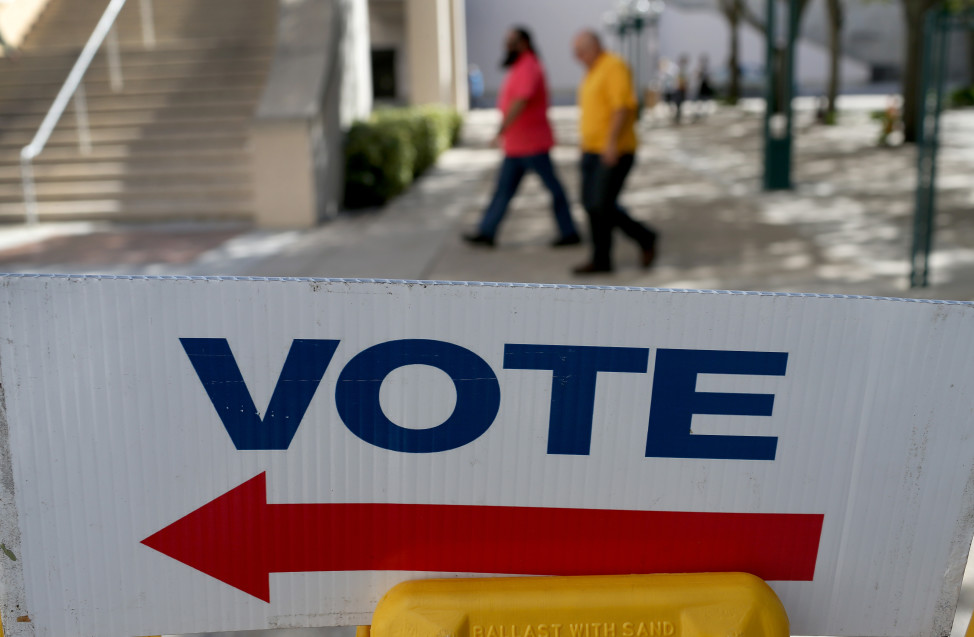
A sign points to an early voting station set up at the government building in Miami, Florida, on Oct. 28, 2014. (AFP Photo)
Americans head to the polls on Tuesday, Nov. 4, to elect a new Congress in what are called “midterm elections” because they occur at the midpoint of a president’s four-year term.
The outcome of the races across the country could have a profound impact on the final two years of Barack Obama’s presidency and the balance of power in Washington.
We asked VOA National Political Correspondent Jim Malone to put the elections in context and answer some basic questions.
What is at stake in the elections on Tuesday?
All 435 seats in the House of Representatives are on the ballot as well as 36 of the 100 US Senate seats and 36 of the 50 state governors.
The U.S. Constitution requires that congressional elections be held every other year. Since Senate terms last six years, about a third of the Senate also faces reelection each time voters go to the polls to pick their representative in the House.
Republicans currently have a majority in the House and experts predict they will gain seats on Tuesday. In fact, they might be able to achieve their highest majority in the House since just after World War II. Democrats hold a majority in the Senate and the big question in this year’s election is whether Republicans will be able to win a net of six seats now held by Democrats and retake the majority. Republican control of both chambers of Congress could further complicate President Obama’s ability to govern in his final two years in office.
Why are the Republicans expected to do well?
Second term presidents often have trouble at the half-way point of their second term when the congressional elections are held. Historically, the president’s party loses an average of more than 20 House seats in the second midterm election. This year is shaping up as a classic example.
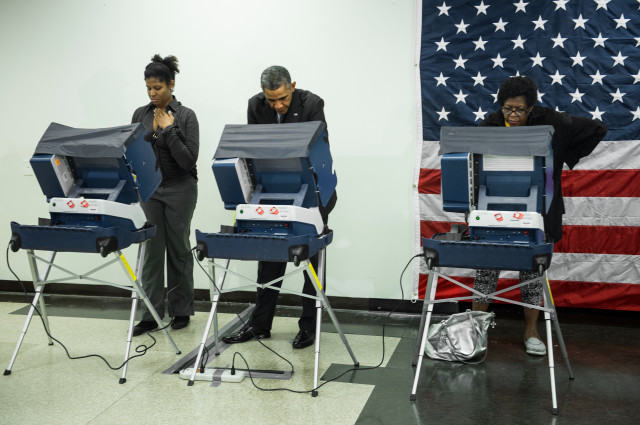
President Barack Obama casts a ballot in early voting for the 2014 midterm elections in Chicago, Illinois, on Oct. 20, 2014. (AFP Photo)
The president’s poll ratings are down—only about 40 percent approve of the job he is doing—and voters seem unhappy and anxious about the domestic economy and some key foreign policy challenges, including the rise of the Islamic State militants and the spread of Ebola.
Republicans have also done an effective job of nationalizing the election—making it more about the president than local candidates and issues—and that is hurting Democratic candidates across the country. The second midterm election usually turns into a referendum on the sitting president and many Democratic candidates in close Senate races are doing their best to put some distance between themselves and the president.
So what are big issues in the election?
Usually voters are most concerned with the economy and their own future economic prospects. The old saying is people “like to vote their pocketbook.” But during a campaign reporting trip to North Carolina recently I found a lot of folks worried about ISIL and how the Obama administration is handling Ebola.
Combined with earlier problems related to the roll out of the president’s health care law, many voters have a dim view of government right now and of President Obama’s ability to lead. That tends to energize Republican voters and depress Democratic turnout. Democrats rely much more on single women, Hispanic and African-American voters and younger people to help their candidates, but many of them are less likely to turn out in a congressional election year than when there is a presidential election.
On the Republican side, the president seems to be galvanizing voters, and not in a good way, and Tea Party activists are also motivated, though perhaps not as strongly as in 2010 when they helped Republicans win back control of the House.
Which races are worth following?
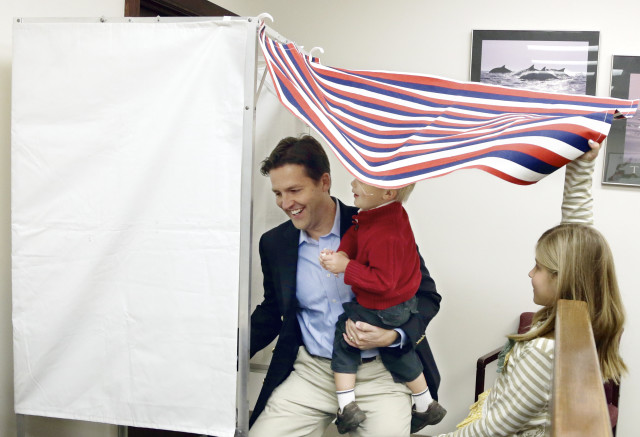
Republican Senate candidate Ben Sasse enters the voting booth with his son Breck, as daughter Alexandra holds the curtain open, during early voting in Fremont, Nebraska, Oct. 31, 2014. (AP Photo)
The big question is whether Republicans will defeat enough Democrats to retake a majority in the Senate. About 10 Senate races will decide the outcome and many of them are very close right now, suggesting it could be a long night on Nov. 4 before we know which party controls the Senate. The Democratic challenge is that many of the seats they are defending are in Republican-leaning states.
Republicans already look likely to take over Democratic Senate seats in Montana, South Dakota and West Virginia. They also have an excellent chance to win Democrats seats in Alaska, Arkansas and Louisiana. Republicans are also leading in states normally more friendly to Democrats—Colorado and Iowa. The only hitch is Republicans are defending Senate seats in Georgia and Kansas from surprisingly strong challengers and that might mean Republicans would have to capture more than six Democratic seats to win the majority.
Watch the results in Colorado and Iowa. Democratic losses there in the Senate races could be a warning sign for the 2016 presidential election. If Republicans can become competitive in states that normally vote Democratic, the Democrats could be in for a tough time in 2016 as well.
Is there a chance the elections won’t be decided on Nov. 4?
Yes there is. Recounts in close races can go on for days or weeks. And in the case of both Louisiana and Georgia, runoff elections will be held if no one wins an outright majority of votes on Nov. 4. The runoff election in Louisiana is scheduled for Dec. 6, and the one in Georgia would be held on Jan. 6, 2015, three days after the new Congress is sworn in. We could have a very dramatic beginning to the New Year if we have to wait until the Georgia runoff to find out which party controls the Senate for the next two years.
Will the election results mean any significant change? How will they affect America’s relationship with the world?
Republicans will be in a better position to push their national agenda if they control both the Senate and House. On the other hand, the onus will be on them to produce something or risk the wrath of voters in 2016. The prospects for more political gridlock with the president are certainly there, but some unexpected opportunities for cooperation on tax reform and international trade could present themselves.
As for the world, Republican control of Congress would act as a big check on the president not only on domestic policy but foreign policy as well. A rightward shift in the Senate could affect the prospects for a nuclear agreement with Iran and could put additional pressure on the Obama administration to step up military action against the Islamic State.
One more thing—look to the Senate as a kind of testing ground for Republican presidential contenders for 2016. Several senators are expected to run and will likely use Senate debates over the next year or two to get their names and ideas before the public.


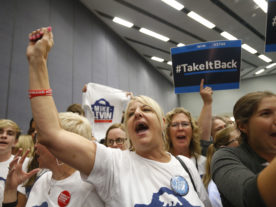














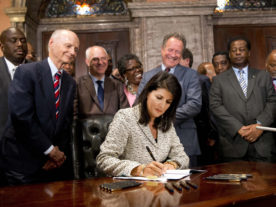




i wish the Democrats a Resounding Victory
I am tired of Republicans like John Boener and Mitch McConnell trying to destroy our country. All they care about is bashing and supporting their campaign donors. We need to vote these bums out of Congress period!
I wish republican a very successful democratic despensation
Never has there been a more clear rebuke of a President…and STILL Barack thinks it’s NOT ABOUT HIM!
Too bad the Republicans didn’t carry enough seats to be able to impeach President Obama: not that they should, but the possibility would ceertain open up the communications lines.